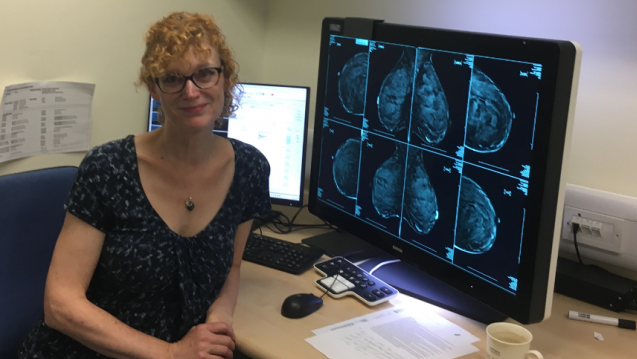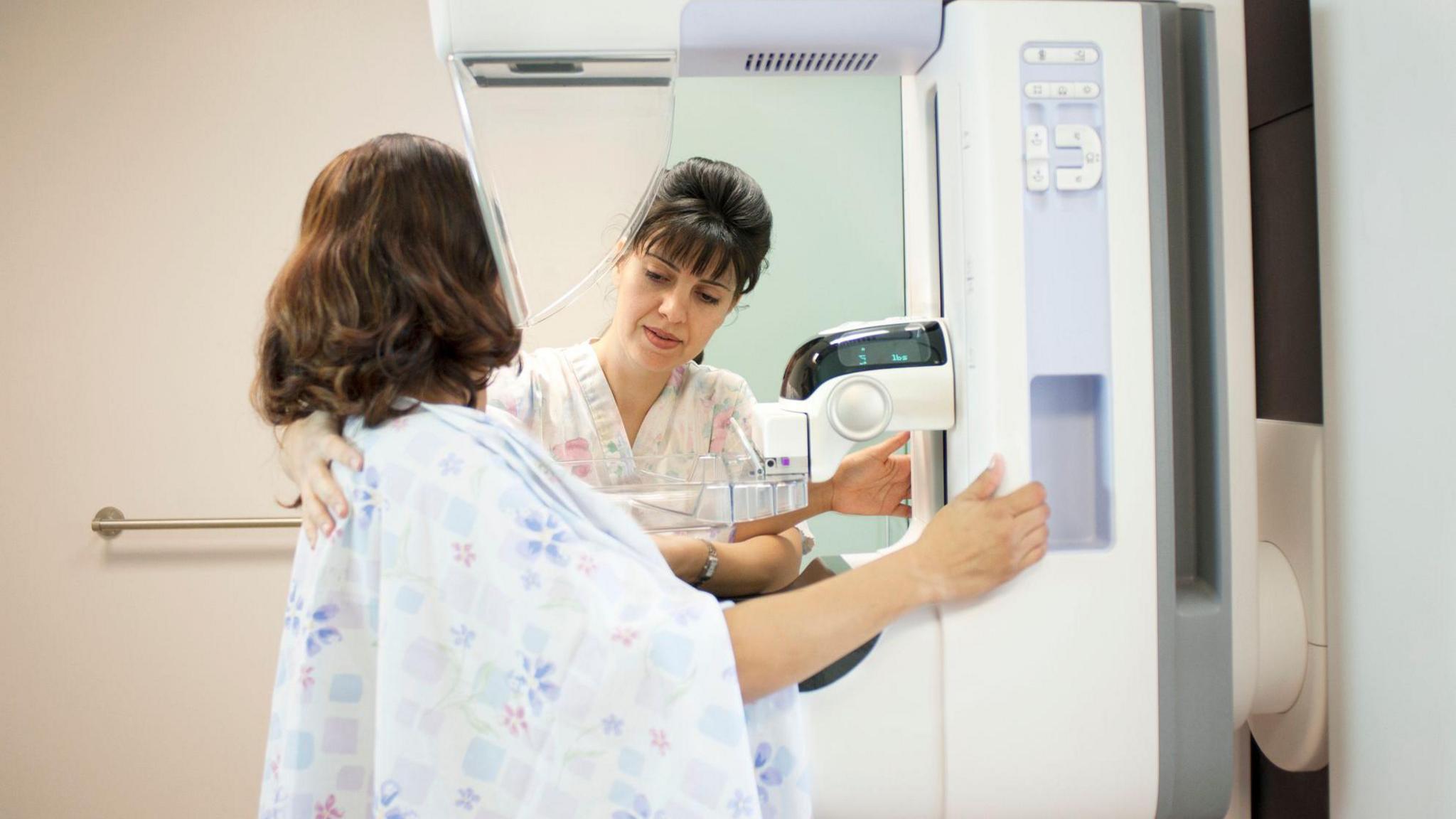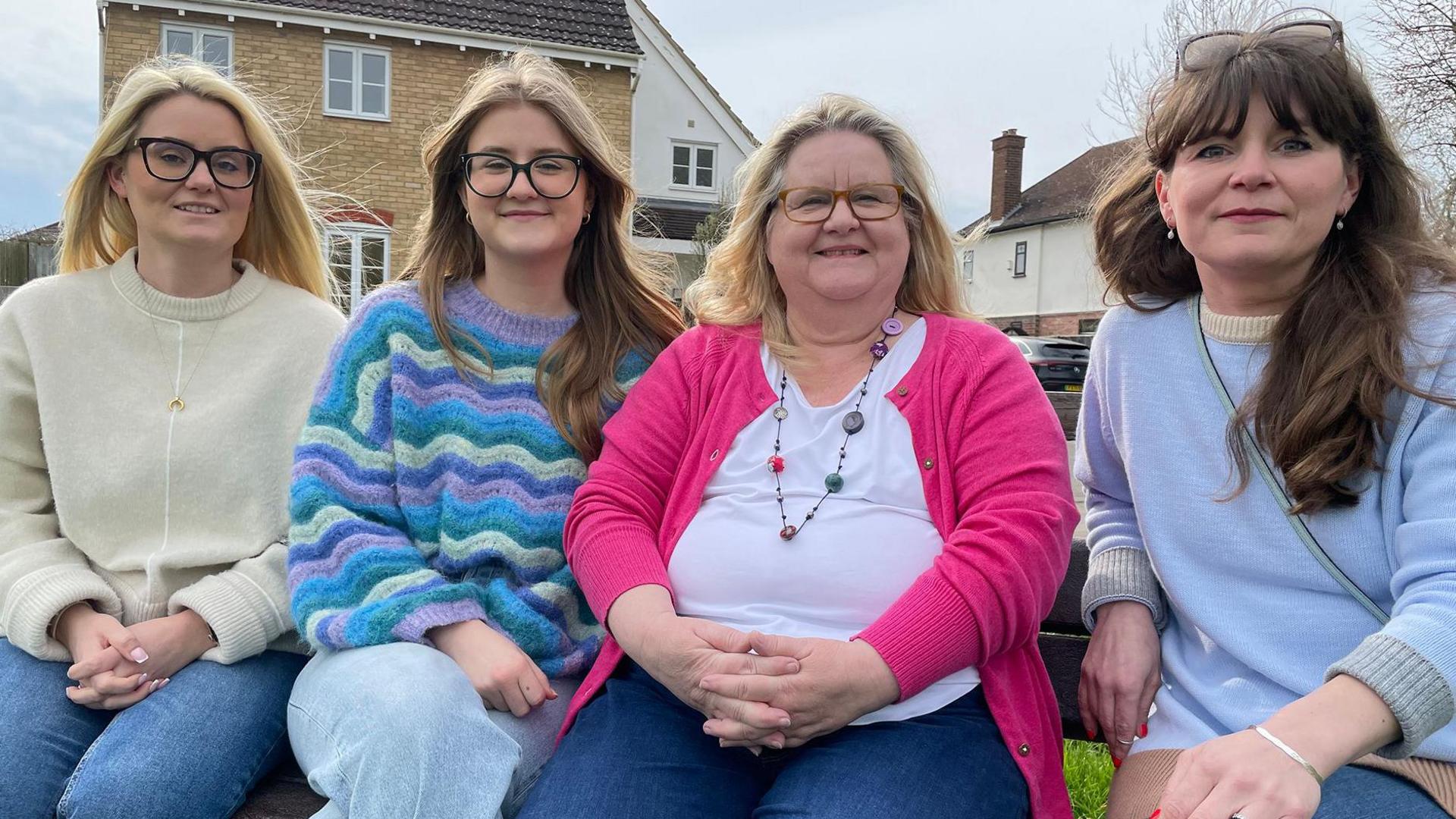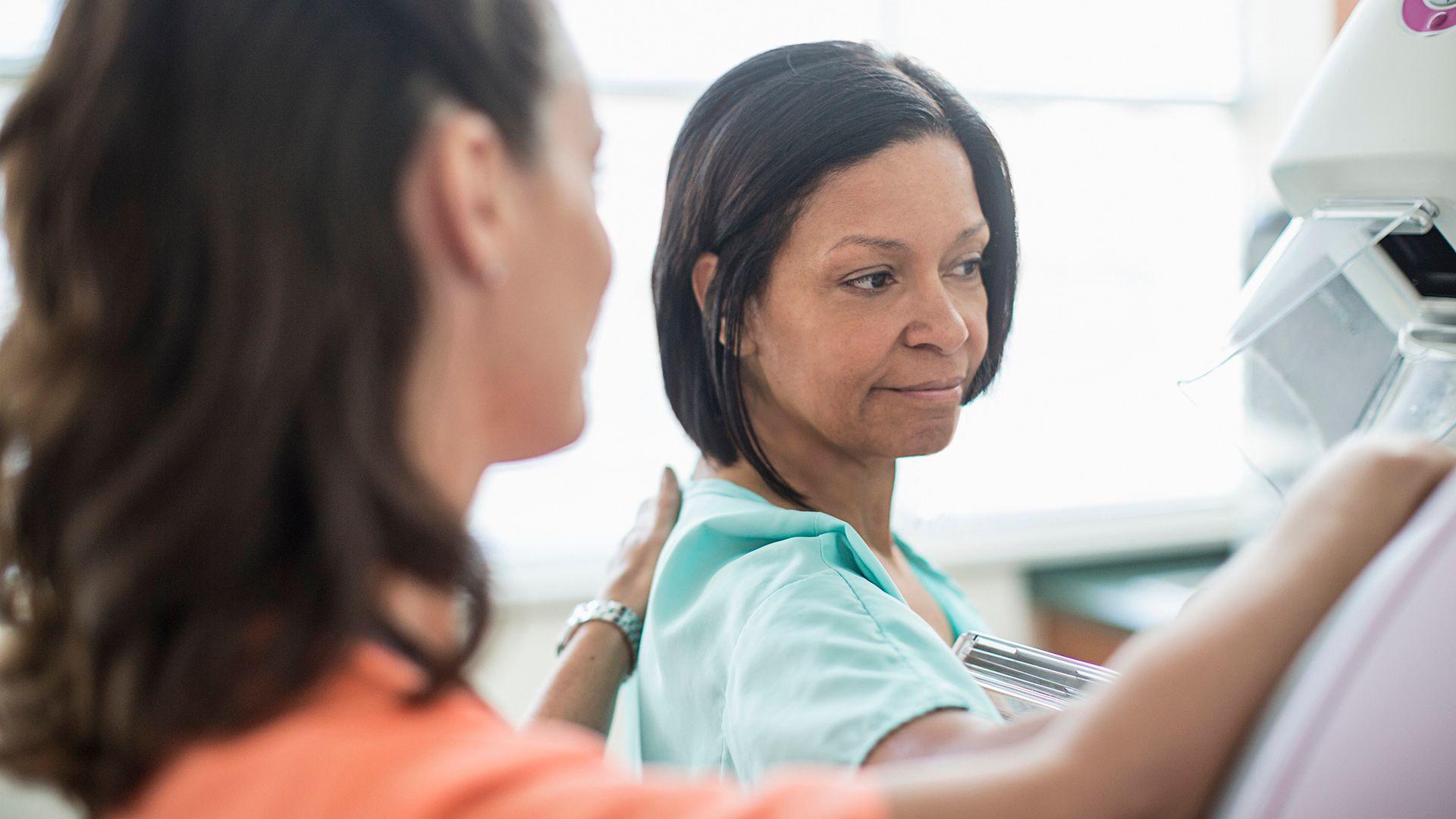'Hidden' breast cancer found in new screening study

Dr Sarah Vinnicombe said a major new study had yielded 'fascinating' results
- Published
A pioneering breast cancer trial involving more than 9,000 patients has found early stages of the disease that might be missed by regular mammograms.
Researchers used a range of different scanning methods, including MRI scans and injecting dye into breast tissue, to better understand the disease.
More than 1,300 patients in the trial were recruited through Gloucestershire Hospitals NHS Trust.
Dr Sarah Vinnicombe, the lead breast radiologist and deputy director of screening at the Thirlestaine Breast Centre in Cheltenham, said she and her colleagues had known for a long time that mammography "even though it's a good screening tool for most women, is not perfect".

Some 2.2 million women are screened for breast cancer each year
The issue, she told BBC Radio Gloucestershire, comes down to the density of breast tissue.
People with denser tissue are at a higher risk of developing cancer, but as breast tissue and cancers both appear white on mammograms, early warning signs can be difficult to pick up.
The researchers looked at three different ways of picking up early-stage cancers - a whole-breast ultrasound, a quick form of breast MRI and a type of mammogram in which patients are injected with a dye to highlight abnormal areas.
With more than 9,000 women involved overall it was the first study ever to take this approach and, Dr Vinnicombe said, it yielded "fascinating" results.
What the researchers found in the group of patients who had the MRI scan or contrast mammogram was a "massive increase in the number of cancers" detected.
As for how their findings could impact what women are offered, Dr Vinnicombe said: "There are a lot of conversations going on in the Department of Health and the national screening committee at the moment.
"It's a work in progress - it's quite clear that we can't just implement contrast mammography or MRI for all those women in the country who have very dense breasts," she added, as this would amount to around 10% of the 2.2 million women screened each year.
However, she added, the research had found that not all women with denser breast tissue were at higher risk - meaning the more effective techniques they had identified could be targeted at a smaller group of women.
Get in touch
Tell us which stories we should cover in Gloucestershire
Follow BBC Gloucestershire on Facebook, external, X, external and Instagram, external. Send your story ideas to us on email or via WhatsApp on 0800 313 4630.
Related topics
- Published13 May

